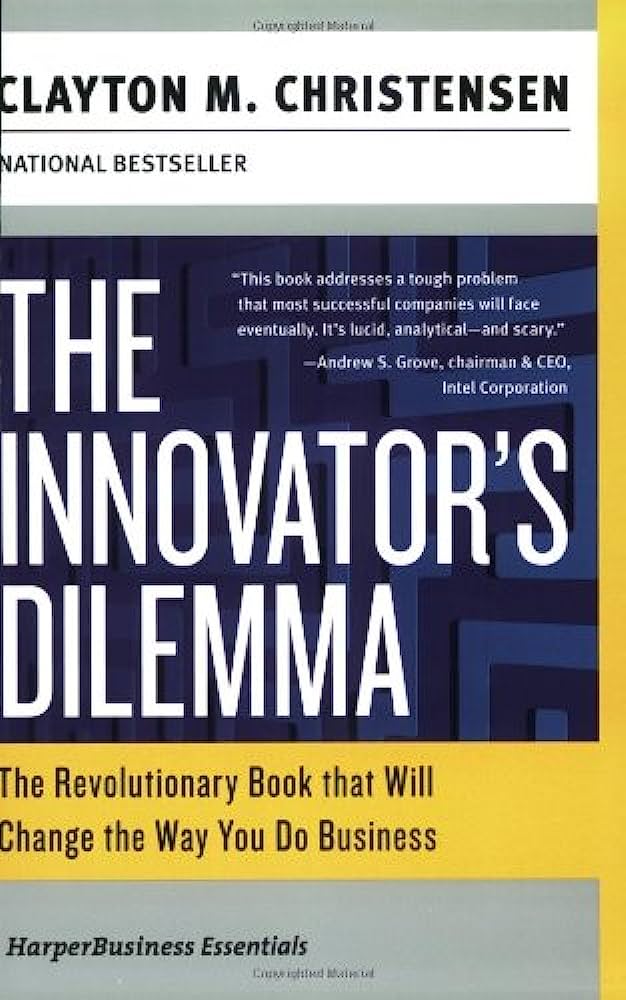The Relationship Economy: Building Stronger Customer Connections in the Digital Age
RATING


In the book The Relationship Economy: Building Stronger Customer Connections in the Digital Age, the author John DiJulius highlights the importance of relationship building. John R. DiJulius III is considered a premier authority on world-class Customer service and is the author of three books on Customer experience. He is the president of The DiJulius Group – a customer service consulting firm that works with such big and successful companies as Starbucks, Chick-fil-A, The Ritz-Carlton, Nestle, PwC, Lexus.
DiJulius begins this book by offering the following thought. “The Relationship Economy is how strongly you feel about the people and businesses in your life. Relationships are the biggest differentiator in customer and brand loyalty. Relationships are at the center of all we do.” In fact, the entire first chapter of the book has nothing to do with business. It is dedicated to and focused on describing what skills and attributes in a person make them a formidable relationship builder. Moreover, it offers insights on the importance of building those relationships in one’s personal and professional life.
The next chapters explore in depth a variety of topics: what a Relationship Economy is, why it is important, and how to dominate it. The 2nd chapter examines the rapid pace at which business and customer service are changing. Chapter 3 explores ways to humanize this experience. The 4th chapter delves into the new reality of the touch-screen world we are living in today. Chapter 5 lays out a systematic approach to building instant rapport with others – both personally and professionally. The 6th chapter shows how businesses are executing those principles in their organizations. Subsequently, chapters 7 and 8 look at the benefits of strong relationships between the business and its customers, and the business and its employees. Then chapter 9 shows how one can be the game changer of the industry one’s in; after which chapter 10 emphasizes the importance of micro-experiences on customer loyalty. Finally, chapter 11 puts it all into the broader context of living a meaningful life as a person.
We truly appreciate how this book explores and highlights relationships. The author understands and depicts relationships as something more than just interactions that we have, that for genuine relationships to exist there need to be deep and meaningful interactions. The book does a good job of describing what makes good relationships and moreover, how those relationships are formed. It then does a solid job of describing the implications and impacts they can have on a business.
While the author explains what relationships are and how to leverage them, he does not give a clear roadmap of how to evolve one’s business model to incorporate these ideas. Adapting a business model and integrating these fundamental changes into not just business practices, but into business and product development is a step above what this book offers.
In The Relationship Economy, author John DiJulius teaches business leaders about the importance of relationship building in the digital age. He argues that in spite of (and because of) the advances in tech, we’ve become a less connected society. We have dramatically evolved away from face-to-face communication, and the skill of building rapport is evaporating. This means that customer personalization and relationships are more important now than ever–and they will be the key to success for businesses moving forward. As he aptly states, “Being able to build true sustainable relationships is the biggest competitive advantage in a world where automation, artificial intelligence, and machine learning are eliminating the human experience, which is what creates the emotional connections that build true customer loyalty.” This book reminds readers of the importance of personal connections and shows them how to attain meaningful, lasting relationships with their customers.
This book has valuable insights for anyone who is currently running or developing their business. While it does not offer enough insights to help one with a complete transformation based on relationships, it can help plant seeds into one’s mind about things which need to be integrated and thought about.
See content on this topic


Sales training for front line along with basic development and coaching principles for line management.
Understanding branding and communications from the standpoint of emotional engagement and building relevant and meaningful dialogue with customers.
This course covers a complete view of customer touch points (both physical and virtual) and a unique model for standardizing and managing customer contact models across channels including approaches for customer feedback, quality management, and migration.
Understand how the innovation process changes moving from functionality and channel design to a process focused on creating value for customers.
Experiential Branding & Communications – Improving Brand Integration Through Emotional Engagement.
This course covers a complete view of customer touch points (both physical and virtual) and a unique model for standardizing and managing customer contact models across channels.
Understand the value of a customer-oriented analytics package and how behavioral scenarios can be used to improve profitability through influencing behavior and usage.
To understand the principles of game dynamics and learn how to effectively use the elements of gamification in business: to involve customers, employees and contractors in the process.
Understanding branding and communications from the standpoint of emotional engagement and building relevant and meaningful dialogue with customers.
This course covers a complete view of customer touch points (both physical and virtual) and a unique model for standardizing and managing customer contact models across channels including approaches for customer feedback, quality management, and migration.
Experiential Branding & Communications – Improving Brand Integration Through Emotional Engagement.
This course covers a complete view of customer touch points (both physical and virtual) and a unique model for standardizing and managing customer contact models across channels.
Sales training for front line along with basic development and coaching principles for line management.
Understanding how leaders must evolve with relation to the evolution of business models, new management models, and the significant changes to the workforce with Digital Natives now making up more than 50% of the workforce globally.
Understand the theory and mechanics of developing and managing a customer-centric and experience-driven corporate culture that is consistent and stable and includes elements of Employee Experience (EX) and Employee Relationship Management (ERM).
Understanding the evolution of leadership styles, management models, organizational structures, performance measurement and guiding change in the evolution of business models from product-centric to customer-centric and even relationship-centric.
Understand how to manage both internal and external digital transformation while considering the landscape for digital business models and the effect on traditional business models. Understanding organizational readiness for transformation and the role of corporate culture in managing transformations.
The changes in consumer behavior, employee behavior, and the evolution of business models in the digital age cause significant difficulties and imperatives for leaders who must develop new skills and evolve their leadership styles to be effective in this fast changing, challenging, and competitive environment.
Understand the value of a customer-oriented analytics package and how behavioral scenarios can be used to improve profitability through influencing behavior and usage.
To understand the principles of game dynamics and learn how to effectively use the elements of gamification in business: to involve customers, employees and contractors in the process.
Understand the components and features in a complex Customer Relationship Management system (infrastructure, architecture, functionality, etc.) and the uses and benefits for both the business and the customer.
Understanding the range and function of different relationship management processes used to build customer engagement models and manage the quality of customer relationships.
Understand how the innovation process changes moving from functionality and channel design to a process focused on creating value for customers.
Understanding the drivers and mechanics of corporate culture will help any management to design and develop an organizational culture for success and growth.




 Copy Link
Copy Link
 E-mail
E-mail
 LinkedIn
LinkedIn
 Facebook
Facebook
 Telegram
Telegram
 WhatsApp
WhatsApp















 Go Back
Go Back
Leave a Reply
You must be logged in to post a comment.